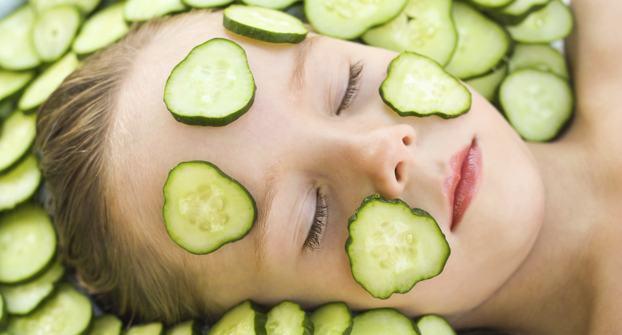Do you really need a special eye cream?
 The list of ‘must-haves’ for your skin could be getting pretty long. You might even be running out of real estate on your vanity top. If you share a bathroom with a male partner, he’s probably saying nothing about this (but is inwardly rolling his eyes).
The list of ‘must-haves’ for your skin could be getting pretty long. You might even be running out of real estate on your vanity top. If you share a bathroom with a male partner, he’s probably saying nothing about this (but is inwardly rolling his eyes).
Do you really need all that stuff? Take eye cream, for example. Is the skin around your eyes really as delicate, special and needy as skincare manufacturers make it out to be? Or have you been conned?
Nope. In most cases, you haven’t been conned. The eye area is one of the first areas to show aging, so extra care you take now will help to ensure you look younger for longer.
Why do you need a specific eye cream?
Even though the skin around the eye area is similar to the skin on your face, it has specific concerns that are different to the rest of your body. It’s thinner than other skin, making it more delicate and sensitive. It also has unique issues - such as puffiness, dark circles and the delicate crow’s feet wrinkles - which are not a problem anywhere else.
Ideally, a good eye cream needs to do three things - brighten the eye area, reduce the appearance of dark circles and help to slow the progress of fine lines. It does this using the same ingredients you would use on the rest of your face, but at lower doses - gentle enough not to irritate the skin.
What’s the difference between regular moisturiser and an eye cream?
While they may use the same ingredients, eye creams are made from less potent or lower doses of product. This is because the skin around the eyes is thin, so it absorbs more of the ingredients than other areas of skin do.
Generally, standard moisturisers aren’t really suitable for your eye area, especially if your moisturiser contains anti-acne products or wrinkle prevention ingredients. These strong ingredients could irritate the eye area and potentially damage the skin.
The exception to this rule is a gentle moisturiser made with totally natural and edible ingredients, such as Okana Vegetable Garden moisturiser. There’s absolutely nothing wrong with using our day or night moisturisers around your eye area. This is because they are made with just a few gentle-but-effective ingredients; they’re also entirely fragrance free.
What kind of eye cream should you choose?
If you decide to shop for a specific eye cream, you should always look for simplicity. Use creams that are fragrance free, as added perfumes can cause allergic reactions in some people. Hypoallergenic creams are good, especially if you have experienced reactions to products before or you wear contact lenses.
Some eye creams contain caffeine, which are designed to reduce wrinkles and baggy eyes. For a temporary period, caffeine is effective at doing this; after it’s applied, within a few minutes the skin will tighten. However, this effect is not long-lasting and its value is dubious.
Some eye creams promise to make crow’s feet disappear. They do this by setting on your skin to create a tight, dry area (as if you’ve smeared egg white around your eyes). It’s a questionable fix and can flake off during the day, which is not a good look. Also, makeup doesn’t sit well on top of these tightening creams.
When should you start caring for your eye area?
If you’re reading this, the answer is now. Moisturising your eye area should be part of your regular routine, whether you’re in your teens, your 80s, or anywhere in between. Eye skin needs constant maintenance and care and it’s never too early to start.
You can use an eye cream for your entire face, but it’s not going to deliver any benefits outside of your normal facial moisturiser. It could be a very costly exercise, because eye creams are generally more expensive than regular creams.
Are eye creams effective?
While some creams are effective at maintaining the health of the skin around the eyes, they are not miracle workers. They can brighten the skin, help to minimise wrinkles and dark circles, and help to alleviate slightly saggy skin, but they won’t magically turn back time. You need to manage your expectations when you buy ‘hope in a jar’. In the end, an eye cream is often just a fancy name for a gentle moisturiser.



Leave a comment
This site is protected by hCaptcha and the hCaptcha Privacy Policy and Terms of Service apply.